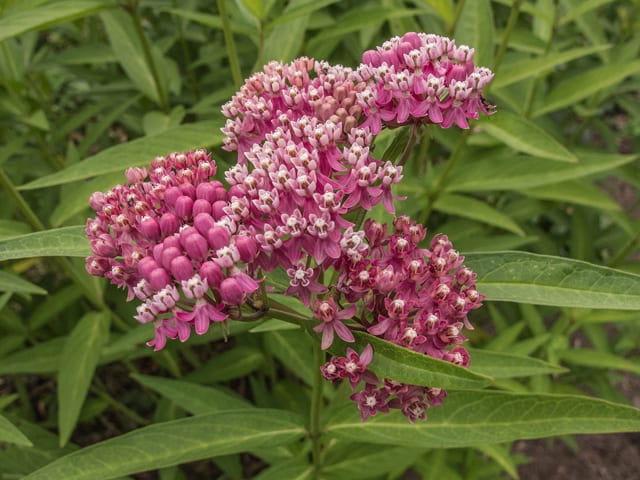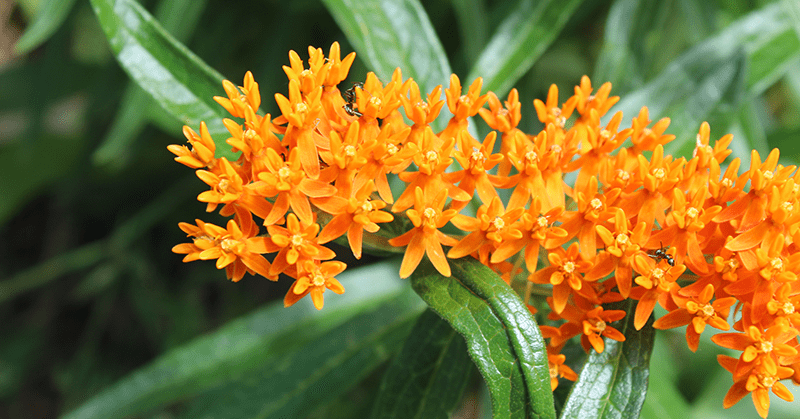Monarchs are on decline across much of North America. This is due to a myriad of factors including habitat loss; use of synthetic fertilizers, pesticides, and herbicide; and climate change. One of the best things YOU can do is plant milkweed host plants and nectar-rich native perennials. Maine Audubon sells native plants; order online and schedule plant pick up at our Falmouth or Holden/Greater Bangor location.
Monarch caterpillars are totally dependent on their host plant, milkweed, of which we have two varieties available for sale (listed below). In addition to milkweed flowers, monarch butterflies get their nectar from a variety of native, late season flowering plants. Five of our best late season flowering plants are listed below.
Milkweed for moist locations:
Asclepias incarnata (Swamp Milkweed, Rose Milkweed)
- Great plant for low, moist spots in the landscape
- Grows best in full sun, edge habitat, middle to back of garden
- Leaves: Host plant for monarch larvae and 9 other butterflies/moths
- Flowers: Nectar source for adult monarch butterflies and many other pollinators

Milkweed for dry locations:
Asclepias tuberosa (Butterflyweed)
- Flowering calendar: June to September
- Drought tolerant
- Has a deep tap root. Best to leave undisturbed once established
- Leaves: Host plant for monarch larvae
- Flowers: Nectar source for adult monarch butterflies and many other pollinators

Additional Late Season Nectar Sources: Food for the Super Generation
- Rudbeckia hirta (Black-Eyed Susan)
- Solidago caesia (Bluestem Goldenrod)
- Solidago sempervirens (Seaside Goldenrod)
- Symphyotrichum novae-angliae (New England Aster)
- Vernonia noveboracensis (New York Ironweed)
Thanks for your support. By growing native plants, you can help an entire ecosystem!
